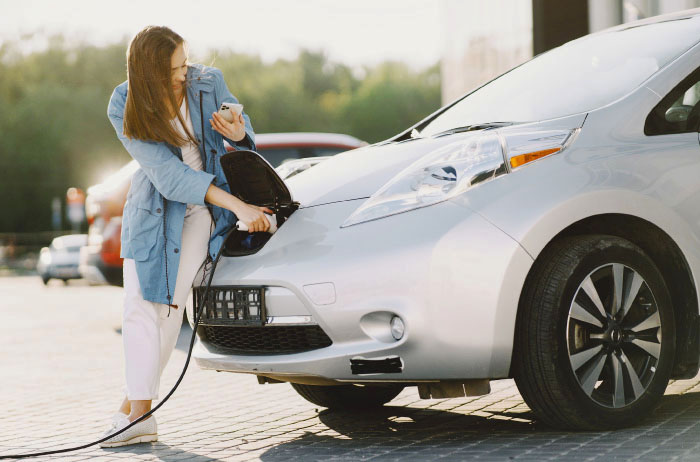Electric vehicles (EVs) are becoming more popular as the world transitions towards greener technology. However, just like traditional cars, EVs require regular maintenance to ensure their longevity and efficiency. In this guide, we’ll break down essential tips for electric car maintenance to help you keep your EV running smoothly for years to come. Let’s dive in and explore everything from battery care to tire maintenance.
Why Electric Car Maintenance Matters
When you think of maintaining a vehicle, you might immediately think of oil changes or engine tune-ups. While electric cars don’t have the same mechanical complexities as gasoline-powered cars, proper maintenance is still crucial. Why? Because even though EVs have fewer moving parts, their specialized components, such as the battery and electric motor, need proper care to function at their best.
ALSO SEE: List of Best Electric SUVs 2024
Battery Health: The Heart of Your Electric Vehicle
At the core of every electric vehicle is its battery. Think of the battery as the heart of your EV. Just like your heart needs to be kept in good shape, so does your car’s battery. Keeping it healthy ensures your EV performs efficiently and avoids costly repairs.
- Avoid Overcharging: Consistently charging your EV to 100% can reduce battery life. Try to keep your charge between 20% and 80%.
- Charge Slowly When Possible: Fast chargers are convenient, but frequent use can strain your battery over time. Slow, overnight charging is gentler on your battery.
- Park in the Shade: High temperatures can degrade your battery. Whenever possible, park in shaded areas or garages to protect your EV.
Regular Software Updates: The Brain Behind Your EV
Just like your smartphone or computer, your electric vehicle runs on sophisticated software. Manufacturers often release software updates to improve performance, fix bugs, or introduce new features. Staying up-to-date with these updates is vital for your car’s optimal performance.
- Why Updates Matter: Software controls many aspects of your EV, from battery management to driver assistance features. Skipping updates can lead to reduced efficiency or even safety risks.
- How to Update: Most EVs allow for over-the-air updates, meaning you can download and install them without visiting a dealership. Check your vehicle’s manual for specific instructions.
Tire Maintenance for Electric Vehicles
Tire maintenance is crucial for all vehicles, but even more so for EVs. Since electric cars are heavier due to their batteries, they put more pressure on tires, leading to faster wear and tear.
- Check Tire Pressure Regularly: Under-inflated tires can reduce your car’s efficiency and lead to uneven wear. Make it a habit to check tire pressure at least once a month.
- Rotate Tires Often: Rotating your tires every 6,000 to 8,000 miles helps ensure even wear, which is especially important for EVs due to their weight distribution.
- Consider EV-Specific Tires: Some manufacturers offer tires designed specifically for electric vehicles. These tires are often more durable and designed to handle the extra weight of an EV.
Brake System Maintenance: Regenerative Braking Benefits
One of the cool features of electric vehicles is regenerative braking. This system helps recharge your battery while braking and reduces the wear and tear on traditional brake components.
- Less Frequent Brake Pad Replacements: Thanks to regenerative braking, EVs generally require fewer brake pad replacements compared to traditional vehicles. However, it’s still essential to check your brakes during regular maintenance.
- Brake Fluid: Like all vehicles, EVs still rely on brake fluid, which should be replaced according to the manufacturer’s recommendations, usually every two years.
Cooling Systems in Electric Vehicles
EVs rely on cooling systems to keep the battery and other components at optimal temperatures. Overheating can significantly reduce battery life and performance.
- Monitor Coolant Levels: Just like a gas-powered car, EVs have cooling systems that require periodic checks. Ensure that coolant levels are within the recommended range to avoid overheating.
- Scheduled Coolant Changes: Follow the manufacturer’s guidelines for changing the coolant. This usually occurs every 5 years but can vary depending on the model.
Charging Habits for Longevity
Charging your electric car isn’t just about plugging it in and letting it juice up. Smart charging habits can significantly impact the long-term health of your EV.
- Use Level 2 Chargers: While Level 3 fast chargers are tempting, sticking with Level 2 chargers for regular charging can prolong your battery’s life.
- Don’t Let the Battery Drain Completely: Unlike older battery technologies, modern EV batteries don’t suffer from “memory effect.” However, letting your battery drop too low consistently can still stress the system.
Climate Control: Protecting the Battery in Extreme Temperatures
Extreme hot or cold weather can have a profound impact on your EV’s battery life. Learning how to manage climate control will keep your battery healthy in all weather conditions.
- Precondition Your Vehicle: In cold weather, precondition your EV while it’s still plugged in. This allows the car to use grid power to warm up, saving your battery for driving.
- Monitor Cabin Temperature: Using climate control while driving consumes battery power. Consider using heated seats and steering wheels in the winter instead of blasting the heat to conserve energy.
Interior and Exterior Maintenance for Electric Cars
Just because electric vehicles are tech-heavy doesn’t mean you can skip out on basic car care. Keeping your car’s interior and exterior clean not only improves aesthetics but also prevents long-term damage.
- Clean Your EV Regularly: Dirt and grime can cause rust, wear out paint, and even affect aerodynamics over time.
- Use Eco-Friendly Cleaning Products: Since you’re driving an environmentally friendly vehicle, consider using eco-friendly cleaning products to align with the green mission.
Maintaining Your EV’s Warranty
Electric vehicles typically come with longer warranties for essential components like the battery. Proper maintenance is crucial to keeping these warranties intact.
- Follow Manufacturer’s Service Recommendations: Every EV comes with a manufacturer-recommended maintenance schedule. Following it ensures you’re in compliance with your warranty.
- Keep Records: Always keep a record of services performed on your vehicle. In case of warranty issues, having these records will make the process smoother.
What to Do if Your Electric Car Breaks Down
Even with the best maintenance practices, unexpected breakdowns can occur. Knowing what to do in this situation can save you a lot of stress.
- Contact Roadside Assistance: Most EV manufacturers offer specialized roadside assistance programs. These services are well-versed in dealing with electric vehicles.
- Don’t Attempt DIY Repairs: Unlike gas-powered cars, electric vehicles contain high-voltage systems that can be dangerous to work on without proper training. Leave repairs to professionals.
EV Battery Recycling: What Happens at the End of Its Life
Even with proper care, all batteries eventually wear out. But the good news is that EV batteries are recyclable. Understanding what happens to your battery at the end of its life is essential for eco-conscious drivers.
- Battery Recycling Options: Many manufacturers are developing programs to recycle old batteries, recovering valuable materials like lithium, cobalt, and nickel.
- Second-Life Batteries: Some EV batteries, once removed from vehicles, can still be used in less demanding applications like home energy storage.
When to Visit a Professional for EV Maintenance
While there are many things you can do yourself, some aspects of electric vehicle maintenance require professional expertise. Knowing when to seek help is key to keeping your EV in peak condition.
- Annual Check-ups: Even if your EV is running smoothly, visiting a professional for an annual check-up can catch potential issues before they become serious.
- Specialized Mechanics: Make sure you choose a mechanic who is trained in EV maintenance. Regular auto shops may not have the necessary expertise to handle your vehicle’s unique needs.
Extending Your Electric Vehicle’s Lifespan
Taking care of your electric vehicle through regular maintenance will significantly extend its lifespan. Just as with traditional vehicles, consistent care is the key to avoiding costly repairs and keeping your EV on the road for years.
- Drive Gently: Sudden accelerations and hard braking can put unnecessary strain on your EV’s battery and motor.
- Stay Informed: Technology is constantly evolving, and new tips for maintaining electric vehicles are emerging. Stay informed by following EV forums, news, and updates from your manufacturer.
Conclusion
Maintaining your electric car is simpler than maintaining a traditional gas-powered vehicle, but it’s no less important. By following these electric car maintenance tips, you can ensure that your EV remains efficient, safe, and reliable for years to come. Remember, proper care not only extends your car’s life but also enhances its performance and reduces long-term costs.
FAQs
1. How often should I charge my electric car?
You should charge your electric car whenever the battery falls below 20%. Try not to charge it all the way to 100% too often, as this can reduce battery life.
2. Can I wash my EV with water like a traditional car?
Yes, electric vehicles are designed to be water-resistant. Just make sure to avoid high-pressure water directly on charging ports.
3. Do electric cars require oil changes?
No, electric cars don’t use engine oil. However, you will still need to check other fluids like brake fluid and coolant.
4. How long do electric car batteries last?
Most electric car batteries are designed to last between 8 to 15 years, depending on usage and maintenance.
5. Can I use any charger to charge my electric car?
It’s best to stick with chargers recommended by your vehicle’s manufacturer. Using non-approved chargers can damage your battery or reduce its efficiency.






